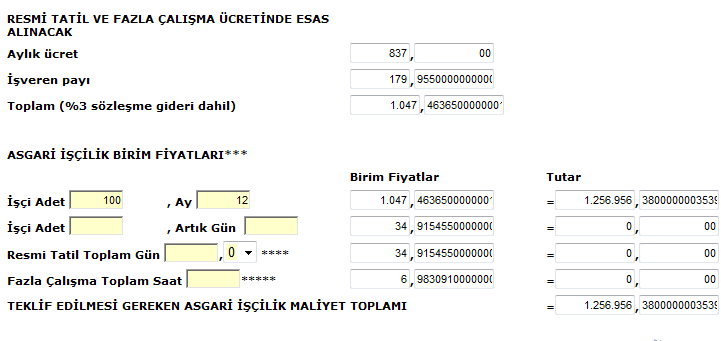OUR WORK IN SCOTLAND’S PRISONS AS PART OF THE
ACCOUNTANT IN BANKRUPTCY1 GUÍA DEL DEUDOR SCOTLAND’S INSOLVENCY SERVICEBEING PART OF SCOTLAND’S STORY UNDER THE DISABILITY CONVENTION
EXECUTIVE SUMMARY SCOTLAND’S NATIONAL ACTION PLAN FOR HUMAN RIGHTS
NHS EDUCATION FOR SCOTLAND’S CONVERSATIONS WITH NHS XXX FINAL
OUR WORK IN SCOTLAND’S PRISONS AS PART OF THE
RETERRITORIALIZING HOUSING GOVERNANCE TRANSFORMING SCOTLAND’S PUBLIC SECTOR HOUSING THROUGH
Our work in Scotland’s prisons
As part of the Commission’s mandate to promote and protect human rights, we have an explicit duty to protect the most vulnerable people in our society and we have the right to enter some places of detention.
The Commission carries out work in the following areas:
Her Majesty’s Inspectorate of Prisons for Scotland (HMIPS)
Her Majesty's Chief Inspector of Prisons for Scotland is required to inspect the 15 prison establishments throughout Scotland in order to examine the treatment of and the conditions for prisoners.
The Commission has been invited to join prison inspectors on a selected number of Scottish prisons during 2015-2016 2015 as part of a trial scheme, and is providing in-depth human rights knowledge to inspectors. This will be reviewed in April 2016.
Independent Monitoring of Prisons
The new system of Independent Prison Monitoring came into force in 2015. Independent monitors are essential in helping to ensure that prisoners’ human rights are upheld and that life in prison contributes to their rehabilitation. Independent monitors are volunteers, and provide feedback on the treatment and conditions for prisoners, including conducting investigations. The new service is subject to regular review through an Advisory Group set up by the Chief Inspector of Prisons for Scotland, which has an independent Chair and includes representation from the Scottish Human Rights Commission, alongside other agencies and civil society organisations. Dr Alan Mitchell, a Commissioner at SHRC, is the Chair of the Advisory Group.
National Preventative Mechanism
The United Nations Optional Protocol to the Convention Against Torture and Other Cruel, Inhuman or Degrading Treatment or Punishment (OPCAT) requires State Parties to establish an independent National Preventive Mechanism (NPM) to undertake inspections, and other preventive activity. The NPM has the right to inspect regularly all places of detention for the purpose of monitoring the treatment and conditions of detainees, with the clear purpose of preventing ill treatment of anyone deprived of their liberty.The Commission is one of 18 independent bodies in Scottish and the UK who draw directly on human rights standards when monitoring places of detention as part of NPM. An annual report [link] is published giving an overview of the state of detention in prisons, police custody, court cells, customs custody facilities, children’s secure accommodation, immigration, military and mental health detention.
Scottish Prison Service
The Commission will provide an information session on human rights based approach and impact assessments to strengthen the current policies and reporting procedures.
SCOTLAND’S CREATIVE INDUSTRIES PARTNERSHIP MEMBERSHIP THE MEMBERSHIP OF SCOTLAND’S
THE UNIVERSITY OF YORK SCOTLAND’S RURAL COLLEGE (SRUC) &
TRAVEL ADVICE HAMPDEN PARK SCOTLAND’S NATIONAL STADIUM SCOTLAND V
Tags: prisons as, of prisons, scotland’s, prisons
- CO PIĄTA GMINA ZANIŻA PENSJE NAUCZYCIELI P ŁACE NAUCZYCIELI
- ВЕЛИКО ВЕЋЕ ПРЕДМЕТ АЛИШИЋ И ДРУГИ ПРОТИВ БОСНЕ И
- PANORAMA NOVA RA PROTIPLYNOVÁ MASKA SE STANDARDNÍ ZÁVITOVOU PŘÍPOJKOU
- PRESENTACIÓN “PREHISTORIA DE LA IGUALDAD” (8 MINUTOS) ACTIVIDADES
- OTTAWA DIRECTORY OF ASD SERVICES FOR CHILDREN AND ADULTS
- ASTMA BARN UTREDNING BEHANDLING VÅRDNIVÅ UTREDNING STRUKTURERAD ANAMNES (+
- C SS TUTORIAL 1 – CREATING YOUR FIRST STYLES
- JESUS’ TRANSFIGURATION MATTHEW 17113 KEY VERSE 2 “THERE HE
- 37 A STRAW MAN PROPOSAL FOR A QUANTITATIVE DEFINITION
- ASTMA OSKRZELOWA U DZIECI ANNA STODOLAK ASTMA
- OBSERVABLES EN « AGIR S’EXPRIMER COMPRENDRE À TRAVERS LES
- ORDEN SSI4252018 DE 27 DE ABRIL POR LA QUE
- PRZYKŁAD UCHWAŁY W SPRAWIE REGULAMINU GŁOSOWANIA W WYBORACH DWÓCH
- SOBANE PROXIMA EVALUATIECHECKLIST BIJ DE CLIËNTEN WERKRUIMTE
- NOWA TEORIA TRZECH POTRZEB SKRYPT DO WYKŁADU WSTĘP
- DECRETO 300 DE 1993 (FEBRERO 15) DIARIO OFICIAL NO
- SPIELPLAN WEIBLICHE CJUGEND SAMSTAG 120806 1330 H DIE
- E L DIA DE LOS MUERTOS INTRODUCCIÓN ¿SABES QUÉ
- ACTIVIDADES 2º SEMESTRE 2006 EVALUACIÓN DE LA CALIDAD DEL
- OFERTA PARA ASOCIADOS DE FECAN DEL 1 AL 30
- AMERICAN PETROLEUM INSTITUTE SUBCOMMITTEE ON ABOVEGROUND STORAGE TANKS TASK
- GETTING AROUND TOKYO I PRELISTENING EXERCISES [TOP] FINDING BUDGET
- SOLICITUD DE OFERTA SOLICITUD DE OFERTA Nº 422
- PROCURADOR GENERAL CONCEPTO 5171 BOGOTÁ DC 14 DE JUNIO
- A GUIDE FOR WORKERS RECENTLY HURT ON THE JOB
- INFORMACIÓN DE PRENSA 15032013 LA GUÍA MICHELIN FRANCE
- TRADE DEVELOPMENT (PARTTIME) TRAINING PROGRAMMES 201314 BAR STUDIES 1
- VIVAGLOBIN ® (IGSC) TERAPIA DE SUSTITUCIÓN EN IDP MM
- LOBICILIĞIN KURBANISINIZ’ TÜRKIYE LOBI YAPMASINI BILMEDIĞI IÇIN AP SÜREKLI
- XXI ENCUENTRO MUJERES Y TEOLOGÍA 2016 EL IMPACTO DE
WOCC621 ANNEX I AMENDMENTS TO THE STAFF REGULATIONS
AGENDA 21 KAPITEL 3 FATTIGDOMSBEKÄMPNING PROGRAMOMRÅDE EN HÅLLBAR
 GROUP 1 GROUP 2 8 OCTOBER 2012 SERVICE ANNOUNCEMENT
GROUP 1 GROUP 2 8 OCTOBER 2012 SERVICE ANNOUNCEMENTCOMP 364 LECTURE 12 (JAN 30) ANNOUNCEMENTS HOMEWORK
ENTRY PROBE MISSIONS TO THE GIANT PLANETS DAVID H
 19 5 MATEMÁTICAS CIENCIAS NATURALES EN GENERAL ES OBJETO
19 5 MATEMÁTICAS CIENCIAS NATURALES EN GENERAL ES OBJETO10 VOM ALPINEN FÜRSTENTUM ZUM KÖNIGREICH VON FRANKREICH DER
 FUNDAMENTOS JURÍDICOS DEL RECURSO DE QUEJA PRESENTADA ANTE EL
FUNDAMENTOS JURÍDICOS DEL RECURSO DE QUEJA PRESENTADA ANTE EL VALUE FOR MONEY AND POLICY REVIEW OF THE SPECIAL
VALUE FOR MONEY AND POLICY REVIEW OF THE SPECIAL KİK İŞÇİLİK MODÜLÜNÜN BAĞLAYICILIĞI KALKTI TEKLİFLERİN VERİLMESİNDE VE DEĞERLENDİRMELERDE
KİK İŞÇİLİK MODÜLÜNÜN BAĞLAYICILIĞI KALKTI TEKLİFLERİN VERİLMESİNDE VE DEĞERLENDİRMELERDE MIASTA ŚWIATA LEGENDA KONTYNENT KRAJ MIASTO AFRYKA
MIASTA ŚWIATA LEGENDA KONTYNENT KRAJ MIASTO AFRYKAGOVERNMENT OF WEST BENGAL FINANCE DEPARTMENT AUDIT BRANCH
 PROPOSITION DE JURY RAPPEL SUR LA COMPOSITION DU JURY
PROPOSITION DE JURY RAPPEL SUR LA COMPOSITION DU JURY ПРИКАЗ ФЕДЕРАЛЬНОЙ СЛУЖБЫ ПО ТАРИФАМ ОТ 6 АВГУСТА 2004
ПРИКАЗ ФЕДЕРАЛЬНОЙ СЛУЖБЫ ПО ТАРИФАМ ОТ 6 АВГУСТА 2004 15 QUE DES RESSOURCES POUR DÉVELOPPER LE GOÛT DE
15 QUE DES RESSOURCES POUR DÉVELOPPER LE GOÛT DE TC ÇANKIRI KARATEKİN ÜNİVERSİTESİ DIŞ HEKIMLIĞI FAKÜLTESI MAKINETEÇHIZAT BAKIMONARIM
TC ÇANKIRI KARATEKİN ÜNİVERSİTESİ DIŞ HEKIMLIĞI FAKÜLTESI MAKINETEÇHIZAT BAKIMONARIM F OD VOLKSGEZONDHEID VEILIGHEID VAN DE VOEDSELKETEN EN LEEFMILIEU
F OD VOLKSGEZONDHEID VEILIGHEID VAN DE VOEDSELKETEN EN LEEFMILIEU UNIVERSITAS ISLAM INDONESIA FAKULTAS HUKUM KHUSUS UNTUK PENGANTAR WISUDA
UNIVERSITAS ISLAM INDONESIA FAKULTAS HUKUM KHUSUS UNTUK PENGANTAR WISUDACOMPANY LETTERHEAD FORM OF IRREVOCABLE DEREGISTRATION AND EXPORT REQUEST
DOCUMENTO DE REPRESENTACIÓN DE PERSONAS JURÍDICAS EN CUMPLIMIENTO DE